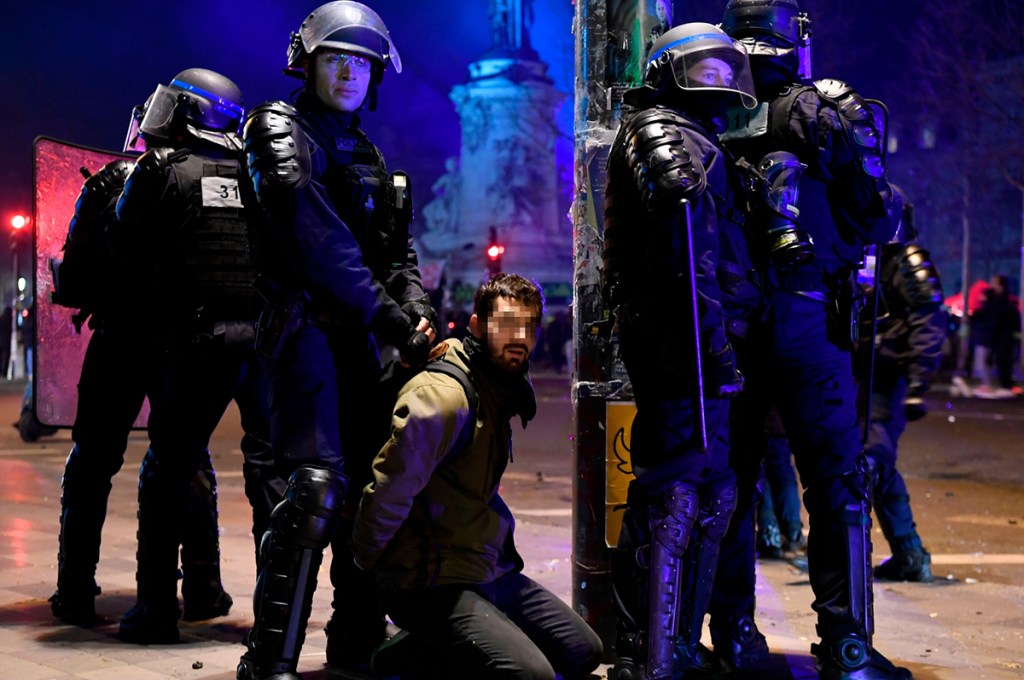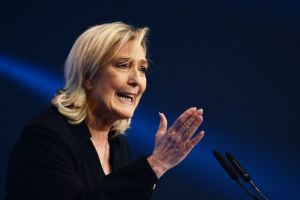Ah, Paris, the city of love, the city of light, the city of larceny. Theft, burglary, pickpocketing, assault and homophobic acts are on the up, and even the city’s Procureur, the public prosecutor Rémy Heitz, has admitted the stats ‘aren’t good’.
No, they’re not. Theft, for example, increased by 15 percent in 2019, up from 124,875 recorded incidents to 144,552. Pickpockets are also enjoying a boom period with an increase of 35 percent in 12 months, and there were 7 percent more burglaries last year than in 2018.
True, car theft and gun crime have dropped but physical assaults have risen by 13 percent, sexual harassment on the transport network has shot up by 30 percent, and also mounting are crimes characterized as homophobic. One of the most high profile incidents in 2019 was an attack on Nidhal Belarbi, the spokesperson of a Tunisian LGBT campaign group, who had claimed political asylum in France. Unfortunately, Belarbi was recognized by a fellow Tunisian who, with three others, beat him so badly he required hospital treatment.
In spite of the lawlessness, polls suggest that Socialist mayor Anne Hidalgo has a good chance of winning a second term when Parisians vote next month. Her political allegiance is important because it accounts for her appeal among a certain type of Parisian. In the 2017 parliamentary election over 50 percent of the capital voted either for Macron’s En Marche party or the centre-right Les Républicains because of their economic policies. But that hardly matters in the mayoral election where middle-class metropolitans can give their social conscience an airing. The French have a name for these people: they call them Bobos, short for bourgeois-bohemians.
Up against Hidalgo is the Républicains’ Rachida Dati, a minister in Nicolas Sarkozy’s government a decade ago, and a woman who shares the former president’s habit for cultivating dubious business relationships.
The initial En Marche candidate, Benjamin Griveaux, withdrew from the contest earlier this month after a sex scandal. He’s been replaced by Agnès Buzyn, the former health minister, and one of the few competent members of President Macron’s government.
Despite her late entry into the race, Buzyn is catching up on her rivals; a poll published at the weekend had her on 20 percent, four percent behind Hidalgo and five shy of Dati. Many pollsters and political commentators believe her composure, charm and squeaky clean image present voters with an appealing alternative to her opponents’ more volatile nature.
But will she be able to overhaul Hidalgo, who believes that green issues are key to her re-election? Crime may have soared on her watch but the number of cars on the road have dropped by eight per cent, and soon she will reduce by 60,000 the number of parking spaces in the city. It’s all part of her promise that if she’s re-elected she will make Paris a ‘100 percent’ cycle city by 2024.
Hidalgo’s opponents say she should sort out her priorities. ‘Paris is dirty [there has been an “invasion” of rats in recent years] and dangerous but the priority is to eliminate parking spaces,’ remarked Le Figaro recently. ‘Crime and insecurity are rising and foreign tourists are confronted on a daily basis with theft and violence that won’t encourage them to return.’
Last year Colombe Brossel, a member of the city council’s security advisers, conceded that the crime rate was ‘shocking’, but the Socialists say that the police are to blame for not doing their job. Not true, they counter, pointing out that they’ve got their hands full every week policing one violent protest after another.
Perhaps it’s no coincidence that crime is not receiving the prominence it should in the liberal media coverage of the election race. Of more interest to some is whether Paris should follow the example of the city of Rennes and ban the heat lamps that warm up the cafe terraces in the winter. Green groups want them outlawed — and to hell with the economic impact on the restaurant trade. Hidalgo has yet to pronounce on the subject but Buzyn has said she wants the heaters to remain.
The issue has become a ‘focal point’ of the mayoral race, and that doesn’t bode well for the city given the burgeoning crime rate. Paris is not yet burning but it will need a tough, honest and determined mayor to make the people feel more secure. Is that Hidalgo? In 2018 she responded to the growing number of homophobic incidents by painting pedestrian crossings in the rainbow colors of the Gay Pride movement. Her virtue signaling made headlines but it hasn’t stemmed the violence against the LGBT community.
The previous year Hidalgo clashed with Donald Trump after the American president claimed ‘Paris is no longer Paris’ because of Islamic extremism. Hidalgo responded by tweeting a photo of Mickey and Minnie Mouse at the Eiffel Tower and boasting that ‘we celebrate the dynamism and the spirit of openness of #Paris with Mickey & Minnie.’
It was a fatuous response from a mayor who, when it comes to fighting crime, has a touch of the Mickey Mouse about her.
This article was originally published on The Spectator s UK website.



















